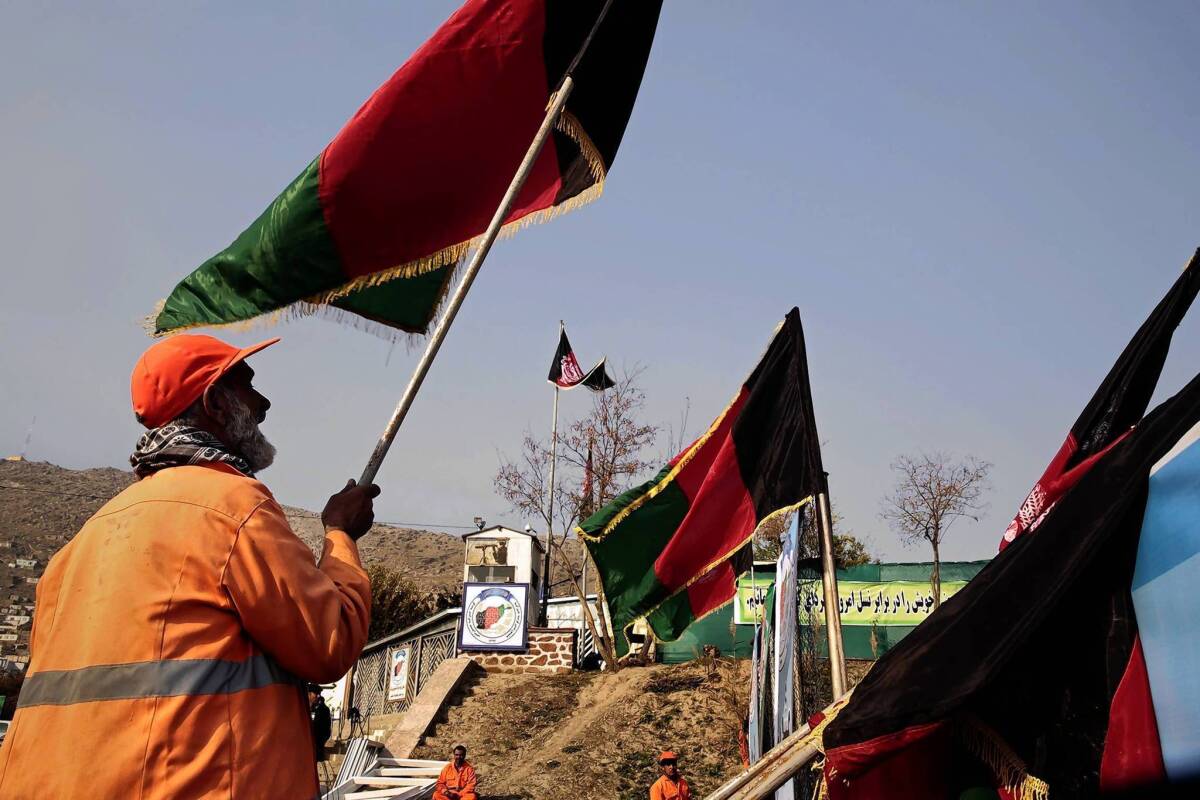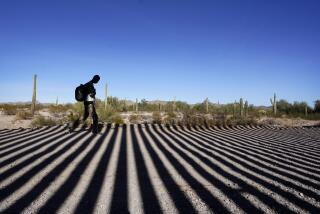Afghan tribal assembly seen as Karzai stalling tactic

- Share via
KABUL, Afghanistan — This country has a president and parliament responsible for critical decisions on national security. But President Hamid Karzai, to the consternation of many who consider it a waste of time and money, has convened a traditional tribal gathering to discuss a security deal with the United States.
A loya jirga, or grand council, opens here Thursday and is likely to paralyze the Afghan capital for five days as about 2,700 delegates from around the country gather to eat, drink and argue inside a tent protected by tight security.
Negotiations on an agreement establishing the level of cooperation between Kabul and Washington after international combat troops leave Afghanistan by the end of 2014 have dragged on for the last year. The loya jirga will further delay the signing of a pact that would, among other things, determine whether the U.S. has legal jurisdiction over American troops accused of crimes and whether U.S. forces will be permitted to enter Afghan homes in pursuit of terrorists or insurgents.
A dispute over legal jurisdiction derailed an agreement between the U.S. and Iraq in 2011 and resulted in Iraq having no ongoing American troop presence. In Afghanistan, the U.S. seeks to keep American military advisors after 2014 to train and provide logistics to Afghan security forces, and to keep U.S. special operations forces for counter-terrorism missions.
With the original U.S. deadline of Nov. 15 now passed, Karzai’s government is setting up an enormous convention site festooned with flags and slogans. Karzai has said he wants consultation with prominent Afghans, a traditional Afghan means of decision-making he also relied on two years ago for another important pact with the United States.
Provincial and district governors appointed by Karzai dominate the roster of proposed loya jirga delegates. Final approval is made by the loya jirga’s 30-member convention commission, appointed by Karzai.
The loya jirga is an advisory body. Parliament has to approve the security pact and can override the delegates’ decision. In any case, Karzai will make the final call. But the president has indicated that he won’t sign without loya jirga approval.
Afghan critics say the loya jirga usurps the authority of the elected parliament. But Afghan analysts and Western diplomats say Karzai wants political cover from the loya jirga, whose delegates he controls, so that he can’t be accused of unilaterally cutting a deal with the United States.
“It’s a five-day paid vacation for poor, backward people who will do what Karzai tells them,” said Abdul Shakoor Qazizada, a Kabul businessman, amid ringing phones at his downtown company.
Many Afghans say Karzai is delaying at a pivotal moment when combat troops are leaving and an April presidential election looms. Even the loya jirga chairman, Sebghatullah Mujadadi, acknowledges that it isn’t necessary.
“That’s why it’s such a waste of time and resources,” said Hamidullah Farooqi, a U.S.-educated economist and former transport minister in Karzai’s government.
It also invites insurgent attacks. On Saturday, the Taliban claimed responsibility for a suicide car bombing on the street outside the loya jirga site that killed 13 Afghans and wounded 29.
Fawzia Koofi, a member of parliament who favors the security pact, said Karzai hopes to use the gathering to pressure the U.S. into concessions. Though all parliament members are invited to the loya jirga, Koofi is boycotting it.
“We don’t need it — it’s pointless,” she said. “The president is putting the decision in the wrong hands and the wrong mouths. He should just sign the agreement and send it to parliament.”
Karzai said Saturday that negotiators had reached a draft agreement, with unspecified differences still being ironed out. He did not elaborate, but Afghan analysts say there was still no agreement on U.S. forces raiding Afghan homes.
The so-called night raids have incensed many Afghans, and Karzai has publicly criticized the U.S. for the attacks. Some have resulted in civilian casualties.
Economist Farooqi, a delegate to previous loya jirgas on national security, said Karzai was trying to gain leverage by digging in his heels over night raids.
“The issue will be resolved,” Farooqi said Monday. “This government cannot survive without a security agreement with the United States — and President Karzai knows it.”
Farooqi said collapse of the agreement would mean no U.S. military presence in Afghanistan, probably resulting in significant cuts in the billions of dollars spent on reconstruction and domestic security forces. “We cannot possibly be secure without it,” he said, adding that parliament is likely to approve the pact.
Najib Amin, the loya jirga deputy secretary and a member of Karzai’s Cabinet, dismisses critics as “a small number of political people making noises.”
Amin said the assembly was legal because the Afghan Constitution allows the president to “consult with citizens on issues of national importance.” Such gatherings also are key in Afghan tradition and Islamic teachings, he said.
The Afghan president has frustrated U.S. officials by stalling, shifting his demands and making public accusations against American forces. Karzai also has demanded guarantees that the U.S. would defend Afghanistan against foreign attack, specifically from Pakistan.
Karzai’s spokesman indicated last month that tentative agreement had been reached on the U.S. role in defending Afghanistan, and on the night raids. U.S. Ambassador James B. Cunningham said in a meeting with journalists Oct. 28 that those points were “among the issues we consider to be resolved.” He said some technical details remained to be negotiated.
A U.S. Embassy spokesman, Robert Hilton, said Monday that Cunningham had no comment on negotiations in Kabul over the weekend, which stalled over the night raids issue. “We view this as an ongoing diplomatic negotiation we won’t discuss in public,” Hilton said.
Karzai’s spokesman, Aimal Faizi, did not respond Monday to requests for comment. A Foreign Ministry spokesman, Janan Mosazai, declined to comment.
Last week, a group of religious scholars and tribal elders opposed to the agreement held a rally to condemn it as a CIA plot. The Taliban, meanwhile, has threatened to “punish each participant” at the loya jirga, which the militant group called a farce concocted by Karzai’s “stooge regime.”
Karzai convened a loya jirga in November 2011 that approved a strategic partnership agreement with the U.S., which set in motion negotiations for the security pact. Militants fired two rockets at that assembly, injuring one person. Most analysts predict the security agreement will be signed, with Karzai pressuring the U.S. to the very end, using the loya jirga for maximum effect.
“Presumably when he takes this agreement to the loya jirga,” Cunningham said of Karzai, “it will be an agreement that he supports.”
More to Read
Sign up for Essential California
The most important California stories and recommendations in your inbox every morning.
You may occasionally receive promotional content from the Los Angeles Times.














